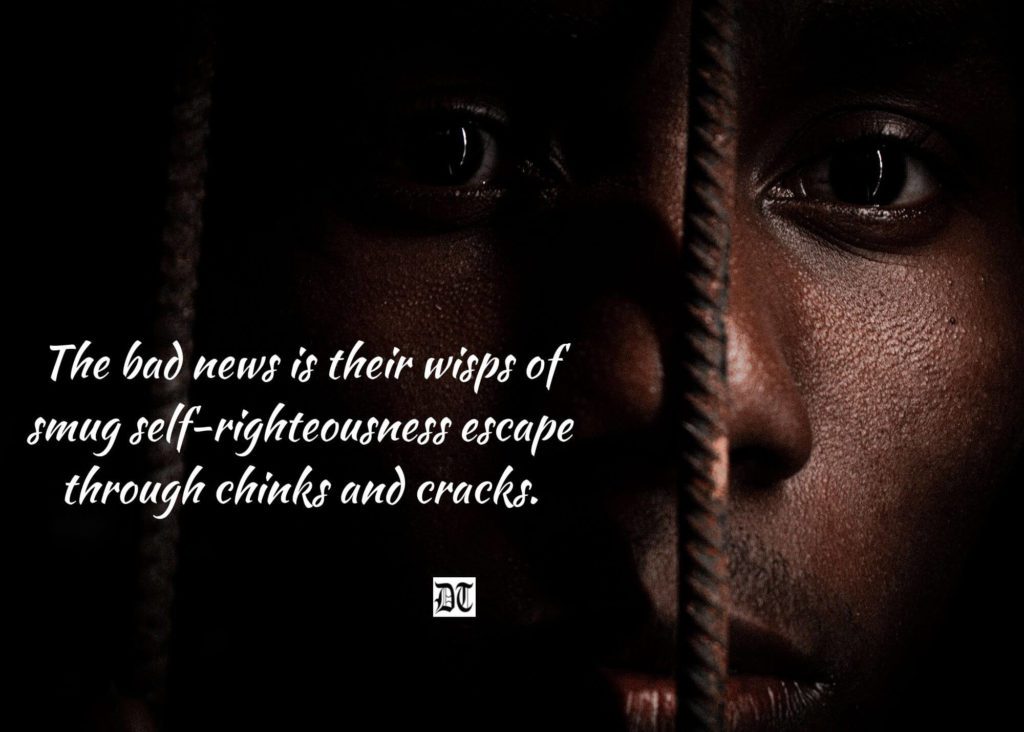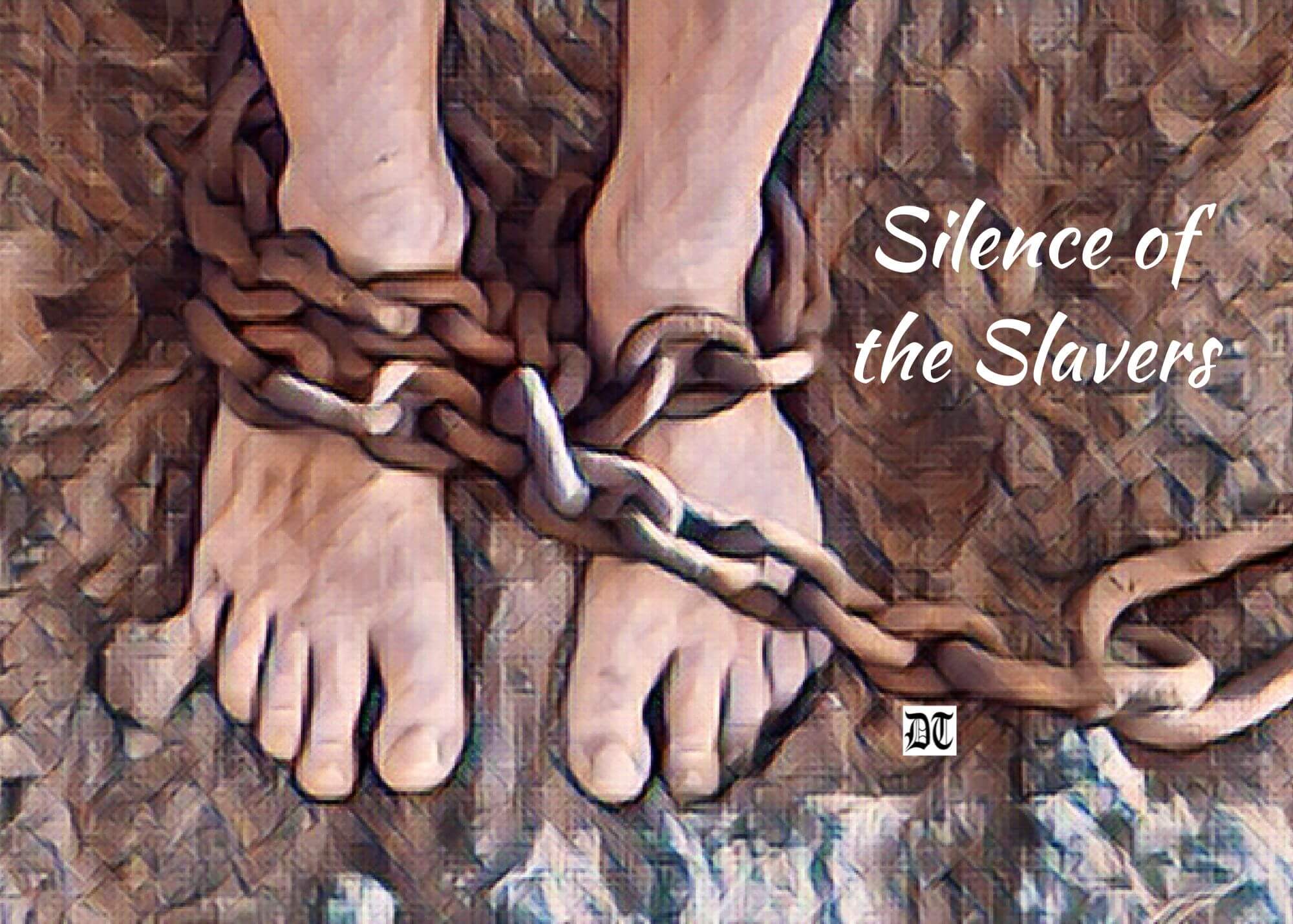Reading Time: 6 minutes
Western nations waited almost two centuries to realise they needed to move beyond abolition to restore slavery’s harm. Azam argues it will be a while before Iran, its Arab-Türkish adversaries, Greece, and Italy admit to previous crimes against humanity. Different Truths exclusive.
Soren Kierkegaard, the 19th-century Danish intellectual widely accepted as the first existentialist philosopher, said, “God … makes saints out of sinners,” and, indeed, the Catholic church has its fair share of both.
Pope Francis’ six-day July 24 to 30 Canadian tour was his avowed “pilgrimage of penance.”
Pope Francis’ six-day July 24 to 30 Canadian tour was his avowed “pilgrimage of penance.” The Toronto Star titled it ‘Pope Francis’s ‘Penitential’ Journey Through Canada.’ The Pontiff went to redeem the Catholic Church from the abusive violence that took place in its residential schools. The Canadian Conference of Catholic Bishops also announced that during the pontifical visit, they would review the Doctrine of Discovery, the papal bull Dum Diversas, emitted by Pope Nicholas V on 18 June 1452, which authorized Portugal to conquer non-Christians and consign them to “perpetual servitude”. Successive Popes issued more bulls on the same subject and even protestant European nations, who repudiated the pope’s authority, let the bulls justify institutionalised slavery to fill their national coffers.
Earlier this year, in March and April, representatives of Canada’s indigenous peoples, during their Vatican visit, had asked Pope Francis for a formal repudiation of the doctrine. According to Union of Catholic Asian News, 29 July 2022, “The loss of the land, language, culture and spirituality of the Indigenous peoples of Canada and the foundation of the residential school system all can be traced to the doctrine; Indigenous leaders told reporters after their meetings with the pope….Matteo Bruni, director of the Vatican press office, said, “…a reflection is underway in the Holy See on the Doctrine of Discovery,’ and the study is nearing its conclusion.”
The most degrading effect of colonisation on the imperial powers themselves was the slave trade, in which the last colonisers blindly emulated their precursors
The most degrading effect of colonisation on the imperial powers themselves was the slave trade, in which the last colonisers blindly emulated their precursors — Greeks, Persian-Iranians, Romans, Ottomans and Arab Caliphates. Western colonisers ravaged Christian principles and brought western Christianity into disrepute.
Yet, Christianity provided the ethical framework for Christians and apostate rationalists to select abolitionism as the exit strategy from this moral quagmire by organising pressure groups to abolish slavery.
In 1740 in the United States, The Religious Society of Friends, better known as Quakers, put into practice the principles of The Enlightenment by starting the first abolitionist movement.
Much later, Mahatma Gandhi dared British liberals to put their lofty slogans into practice for a situation analogous to that of slavery.
Much later, Mahatma Gandhi dared British liberals to put their lofty slogans into practice for a situation analogous to that of slavery. In any case, according to historian Paul Kennedy’s The Rise and Fall of the Great Powers, at the dawn of the First World War, the British empire’s colonial enterprise had already entered the beginnings of insolvency.
Following World War II, intellectuals such as Edward Said, Franz Fanon and Gayatri Chakravorty mobilized the global literati and intelligentsia to further empower anti-colonialism.
The semantic din released by this concentration of energy allowed preceding imperialist perpetrators to huddle under their decadence, artfully reinventing themselves as victims of their successors. Take the example of Iraq. Today, it is perceived as a victim. Yet, in the 8th century BC Assyria, it gleefully carted off most of the Jewish nation into slavery.
Furthermore, the increasingly porous post-WW-II frontiers of the West have confirmed Marshall McLuhan’s prediction of the world as a Global Village. This transnational space is filled with loud and media-savvy regrets and acrobatically borderline apologies for colonization by history’s most recent imperialists — the United Kingdom, France, Spain, Portugal, Belgium, Germany, Denmark and the Netherlands, while their precursors procrastinate.
Even the United States has secured itself a place on the endemic guilt bandwagon.
Even the United States has secured itself a place on the endemic guilt bandwagon. What goes beyond their land-grab and forced denaturalisation of Native Americans is their former institutionalisation of slavery.
Spain has not yet found a reason to apologize to its former colonies.
Portugal abolished slavery in 1761 but has not formally expressed any regrets.
The British abolished slavery in 1833, while on and off, they returned the odd artefact to keep skating on their slippery moral slope.
France abolished slavery in 1794, and again in 1848, the USA in 1865, and they share the UK’s approach.
Denmark, which abolished slavery in 1792, Norway in 1803, Germany in 1807 and Belgium in 1833, occasionally make the right noises, publicise the odd gesture, buff their liberal credentials, dust their trouser-bottoms, and cheerfully carry on.
The good news about all these countries is that they voluntarily overturned a despicable practice without waiting for a military defeat to do it for them.
The good news about all these countries is that they voluntarily overturned a despicable practice without waiting for a military defeat to do it for them. Being democracies with a free press, their citizen groups were able to function. The USA even went through mass fratricide to take the first step on the path of redemption. The bad news is their wisps of smug self-righteousness escape through chinks and cracks.

The 1975 United Nations Human Rights Working Group observed: “…some (countries) have taken the initiative of regretting or expressing remorse or presenting apologies and call on all those who have not yet contributed to restoring the dignity of the victims to find appropriate ways to do so and, to this end, appreciate those countries that have done so.”
In 1998, the Rome Statute, the treaty that defines specific crimes against humanity and established the International Criminal Court, consensually listed “Enslavement” as a Crime Against Humanity.
Countries desirous of reshaping their image and self-image took note and acted.
On May 21st, 2001, France officially recognised the slave trade and slavery. On 19 June 2020, the European Parliament declared the slave trade a crime against humanity.
There is no statute of limitations covering organised slavery, and any country that practised this despicable trade is free to step forward
There is no statute of limitations covering organised slavery, and any country that practised this despicable trade is free to step forward, own up and be appreciated.
Yet, the Greeks, Persian-Iranians, Romans, Ottomans and other Arab Caliphates feel no need to face their tragic past.
Their silence is deafening, their glorious accomplishments are conjugated in the past tenses, and they feel that their decline exempts them from even an admission to the governance under which they filled their coffers from the slave trade.
The website of Le Mémorial de l’Abolition de l’Esclavage, Nantes, France, has published KEY DATES IN THE CHRONOLOGY OF ABOLITIONS by country, and in English. It is worth a look.
Türkiye’s Ottoman Caliphate, in stages starting in 1830, tried to remove the stain of slavery through partial decrees.
By the mid-nineteenth century, western slave-trading nations had abolished the practice. Türkiye’s Ottoman Caliphate, in stages starting in 1830, tried to remove the stain of slavery through partial decrees. Yet, only after Mustapha Kemal Pasha reformed Türkiye as a secular republic in 1923 did it finally start kindling its Age of Enlightenment. Yet, Türkiye dragged its feet for thirteen years until 1933 to ratify the 1926 League of Nations convention on abolishing slavery. And only in 1964 did it finally pass legislation explicitly prohibiting slavery. That came one year after signing the Ankara Agreement, which outlined a framework of cooperation between Türkiye and the European Union. Even today, Türkiye, Persian-Iranians, Italy, Greece, the descendants of Arab caliphates and other slavers go about their business in silent denial.
Although Saudi Arabia and Iran are Türkiye’s rivals, they have not tried to show up to their competitor by admitting their slaving history. Iran did not abolish slavery until 1929 and Saudi Arabia as late as 1962. Still, neither has made a national, public attempt to launder this historical disgrace and measure up to the UNO’s condemnation of a crime against humanity. Their ear-splitting silence does them a disservice.
Going by Monir Ghaedi’s 08 February 2022 article in Deutsche Welle (DW), among these denialist slavers, only the Gulf Region shows a glimmer of enlightenment. Türkiye’s friend and ally, Qatar, has taken a step forward by opening the Bin Jelmood House museum in Doha, dedicated to slavery in the Arab world.
Türkiye’s other friend, Kuwait, took another step last year.
Türkiye’s other friend, Kuwait, took another step last year. Professor, Al-Awadi of the American University of Kuwait’s “The History of Slaves in the Gulf” is one of the first Arabic publications on the topic. Otherwise, Murray Gordon’s classic unacted-upon “Slavery in the Arab World” remains a seminal work.
It took Western countries nearly two centuries before they started realising that they needed to go beyond abolition to repair the damage — or at least appear to be doing so. Abolition itself is not yet two hundred years old. If that is taken as a norm, then there’s a long wait before Iran, and its Arab-Türkiye rivals and Greece and Italy step forward to publicly profess their past crime against humanity without waiting for something like a #U2stepforward# campaign.
Or perhaps they could seek counselling from Pope Francis, who, in becoming a party to the expected repudiation of the Doctrine of Discovery which spawned the western slave trade, has set an example. The Vatican is likely to deploy its experience and resources in their favour.
Picture design by Anumita Roy, Different Truths















I always enjoy reading your articles when you send me the links. You have a gift for discussing complicated issues in truthful yet amusing ways. Your thoroughly researched articles help readers realise that the human problems of world are typical, and we can solve them in constructive ways.
Thanks for sharing.
Sincerely,
QRS